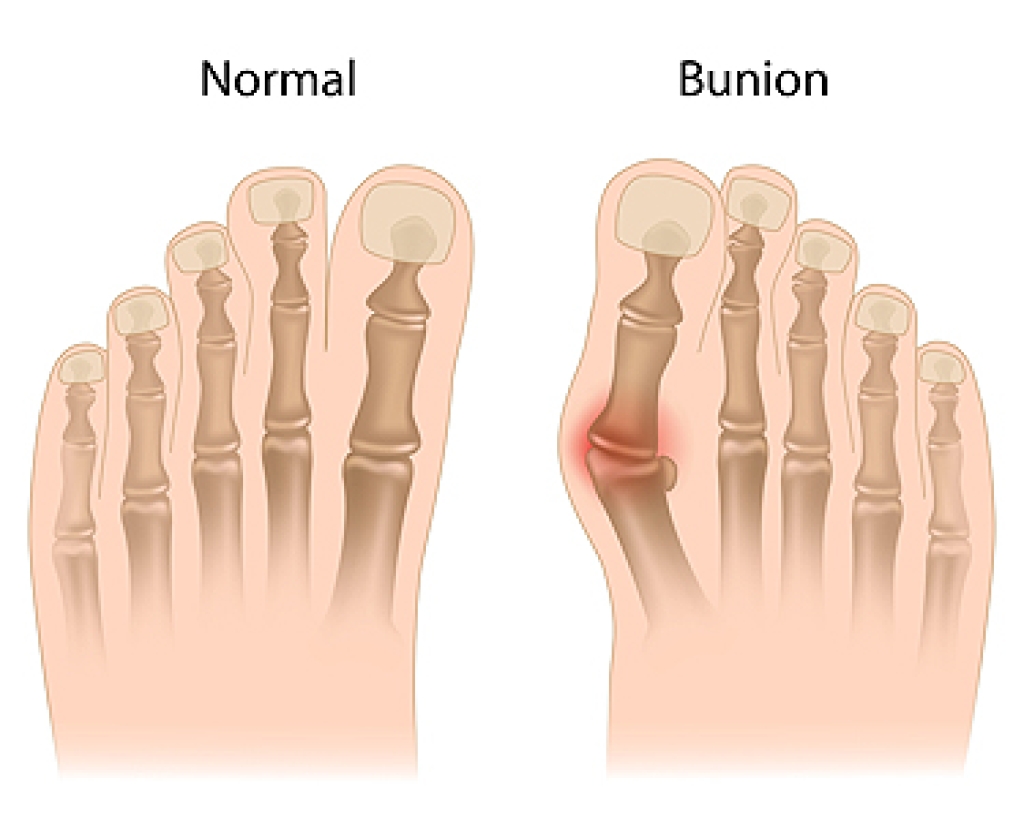
Research has shown that bunions are the most common medical condition that affects the front of the foot. It is easy to notice by the large bump that develops and protrudes on the side of the big toe. Severe bunions may cause the other toes to shift together, and larger shoes may need to be purchased. A bunion is considered to be a deformity and can happen from wearing shoes that do not have ample room for the toes to move freely in. High heels can fit into this category, and it is helpful to limit how frequently they are worn. There are various types of bunions, and a simple bunion is a bump on the side of the big toe joint. The same bunion may have skin irritation from rubbing against the shoes and a tailor’s bunion forms on the pinky toe. Bunions with hallux limitus can change the structure of the foot, which may cause the bunion to form on the top instead of on the side of the foot. Some people can help to wear a protective pad over the bunion for mild relief. If you have a bunion, it is strongly suggested that you visit a podiatrist who can offer you treatment options that are correct for you.
If you are suffering from bunions, contact one of our podiatrists of Bangor Podiatry. Our doctors can provide the care you need to keep you pain-free and on your feet.
What Is a Bunion?
A bunion is formed of swollen tissue or an enlargement of boney growth, usually located at the base joint of the toe that connects to the foot. The swelling occurs due to the bones in the big toe shifting inward, which impacts the other toes of the foot. This causes the area around the base of the big toe to become inflamed and painful.
Why Do Bunions Form?
Genetics – Susceptibility to bunions are often hereditary
Stress on the feet – Poorly fitted and uncomfortable footwear that places stress on feet, such as heels, can worsen existing bunions
How Are Bunions Diagnosed?
Podiatrists often perform two tests – blood tests and x-rays – when trying to diagnose bunions, especially in the early stages of development. Blood tests help determine if the foot pain is being caused by something else, such as arthritis, while x-rays provide a clear picture of your bone structure to your provider.
How Are Bunions Treated?
- Refrain from wearing heels or similar shoes that cause discomfort
- Select wider shoes that can provide more comfort and reduce pain
- Anti-inflammatory and pain management drugs
- Orthotics or foot inserts
- Surgery
If you have any questions, please feel free to contact our offices located in Bangor, Gilbert, and Bethlehem, PA . We offer the newest diagnostic and treatment technologies for all your foot care needs.
